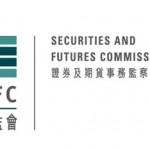HK Targets Tax-Friendly Policies For Asset Management

“As more wealth is generated in Mainland China, … Hong Kong is ideally positioned to facilitate the flow of [investment] capital from the Mainland in a controlled manner, acting as the asset management center for outbound capital from the Mainland,” Secretary for Financial Services and the Treasury Professor K C Chan told the Hong Kong Venture Capital and Private Equity Association China Private Equity 2014 Summit on June 13.
With Mainland China no longer being just an investment destination for foreign capital, Chan noted that it has also become an important source of capital. Speaking about the opportunities for Hong Kong in the asset management field, Chan said Hong Kong can act as a “highly efficient and low-risk financial gateway to Mainland China.”
“Hong Kong is the major source of foreign direct investment in Mainland China, accounting for 59 percent of total inflow of realized foreign direct investment during 2012,” he said. “The liberalization of the use of RMB for direct investment has paved the way for Hong Kong to become the largest offshore RMB funding center for companies to raise capital to finance their Mainland China operations.”
Chan confirmed that: “To facilitate further growth of the asset management industry, the Hong Kong Government will continue to provide a clear and competitive tax environment and a competitive legal and regulatory framework.”
He pointed out that the Government launched a three-month public consultation in March on the plan to introduce a new open-ended fund company (OFC) structure as an alternative to the existing unit trust structure. As the open-ended investment company is popular in the international fund management industry as a vehicle for setting up investment funds, the OFC legislation is intended to help Hong Kong develop further as a comprehensive asset management center.
The Government, he added, is “also working on the legislative proposal to extend the profits tax exemption for offshore funds to also cover private equity funds. The proposed exemption will cover transactions in private companies which are incorporated or registered outside Hong Kong and do not hold any Hong Kong properties nor carry out any business in Hong Kong. The new measure will provide an incentive for private equity funds to further expand their business in Hong Kong.”
Chan said the exchange-traded funds (ETFs) market is another area that is receiving the Government’s support. The stamp duty concession in 2010 was extended to cover ETFs that track indices comprising not more than 40 percent of Hong Kong stocks. Chan pointed out that the number of ETFs listed in Hong Kong rose from 69 at end-2010, to 116 at the end of last year.
“To further promote the growth of the market,” he stated, “we are planning to waive the stamp duty for the trading of all ETFs as a means to lower the transaction costs. Our goal is to introduce the legislative amendments into the Legislative Council in the next legislative session.”
Finally, Chan said, to promote the diversification of fund products available to investors, “we are working closely with the Mainland authorities on the mutual recognition and cross-border offering of funds arrangement between Hong Kong and Mainland China. Consensus has been reached between the SFC and relevant Mainland authorities on the arrangement, pending formal approval from the State Council.”
According to the annual Fund Management Activities Survey 2012, published by the Securities and Futures Commission (SFC), the combined fund management business in Hong Kong reached a record high of HKD12.6 trillion (USD1.6 trillion) in 2012, an annual growth of almost 40 percent. Hong Kong is already the largest base for Chinese securities and fund management houses outside Mainland China.
The private equity industry is also growing rapidly. As at September 2013, total capital under management in Hong Kong’s private equity funds reached USD94bn, representing one-fifth of Asia’s total. Furthermore, Hong Kong accommodates most of Asia’s top venture capital firms, and serves as a platform for regional headquarters to a number of private equity firms that invest heavily in Mainland China, as well as Japan and South Korea, Chan said.
Source: lowtax




























